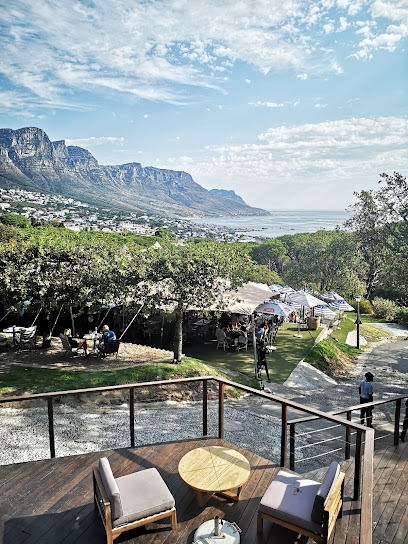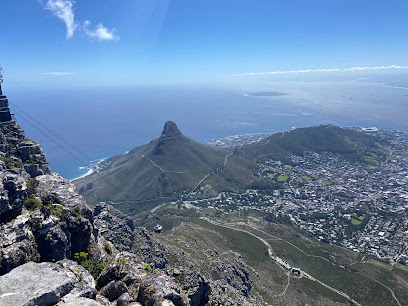
Majestic Heights: Exploring Table Mountain National Park
Discover the natural beauty of Table Mountain National Park in South Africa, where breathtaking views, diverse landscapes, and unique wildlife await.
Table Mountain National Park, located in South Africa, is a natural wonder that draws tourists from all corners of the globe. The park is known for its iconic flat-topped Table Mountain, which offers breathtaking views of Cape Town and the surrounding ocean. Visitors can reach the summit via a scenic cable car ride or opt for one of the many hiking trails that range from easy to challenging. The park is not just about the mountain. It spans across the Cape Peninsula, encompassing a rich variety of landscapes from lush forests to rugged cliffs and pristine beaches. The Cape of Good Hope, a part of the park, is famous for its dramatic coastline and is a must-visit spot for nature lovers and photographers alike. Wildlife enthusiasts will be thrilled with the diverse fauna within the park, including the unique fynbos vegetation, baboons, and the elusive caracal. Bird watchers can spot a variety of bird species, making it a paradise for ornithologists. Whether you are an adventure seeker, a nature lover, or simply looking to soak in some of the most stunning views in the world, Table Mountain National Park has something to offer for everyone.
Local tips in Table Mountain National Park
- Check the weather before planning your visit; the cable car may close in strong winds.
- Wear comfortable hiking shoes if you plan to explore the trails.
- Bring a jacket; it can get chilly at the summit even on sunny days.
- Purchase tickets for the cable car online to avoid long queues.
- Stay hydrated and carry water, especially during long hikes.
- Be cautious of baboons; do not feed them or leave food unattended.
- Visit early in the morning to enjoy the views with fewer crowds.
Majestic Heights: Exploring Table Mountain National Park
Table Mountain National Park, located in South Africa, is a natural wonder that draws tourists from all corners of the globe. The park is known for its iconic flat-topped Table Mountain, which offers breathtaking views of Cape Town and the surrounding ocean. Visitors can reach the summit via a scenic cable car ride or opt for one of the many hiking trails that range from easy to challenging. The park is not just about the mountain. It spans across the Cape Peninsula, encompassing a rich variety of landscapes from lush forests to rugged cliffs and pristine beaches. The Cape of Good Hope, a part of the park, is famous for its dramatic coastline and is a must-visit spot for nature lovers and photographers alike. Wildlife enthusiasts will be thrilled with the diverse fauna within the park, including the unique fynbos vegetation, baboons, and the elusive caracal. Bird watchers can spot a variety of bird species, making it a paradise for ornithologists. Whether you are an adventure seeker, a nature lover, or simply looking to soak in some of the most stunning views in the world, Table Mountain National Park has something to offer for everyone.
When is the best time to go to Table Mountain National Park?
Iconic landmarks you can’t miss
Newlands Forest
Immerse yourself in the natural beauty of Newlands Forest, a tranquil haven in Table Mountain National Park, perfect for hiking, picnicking, and wildlife watching.
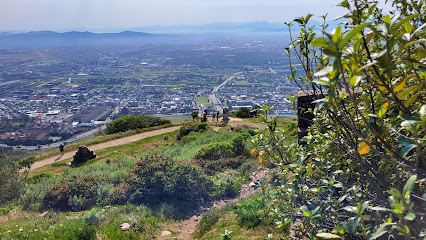
Rhodes Memorial
Experience the captivating history and breathtaking vistas of Rhodes Memorial, a stunning monument at the foot of Devil's Peak in Cape Town.
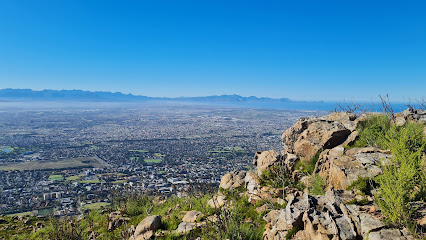
Table Mountain
Discover the breathtaking beauty of Table Mountain in Cape Town, a natural wonder offering stunning views, diverse flora, and unforgettable adventures.
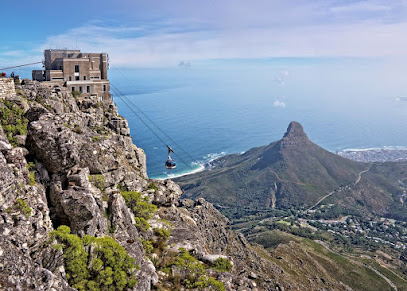
Platteklip Gorge Starting Point
Experience the breathtaking beauty of Platteklip Gorge, the most popular hiking route to Table Mountain, in the heart of Cape Town's nature reserve.
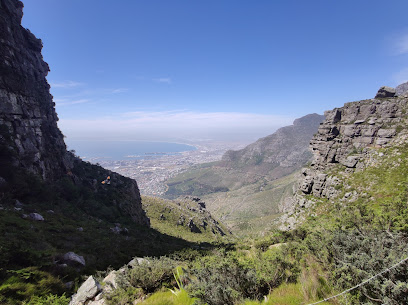
Robben Island viewing Point (looking toward Table Mountain)
Discover the breathtaking views of Table Mountain while reflecting on the historical significance of Robben Island, a powerful symbol of South African resilience and hope.
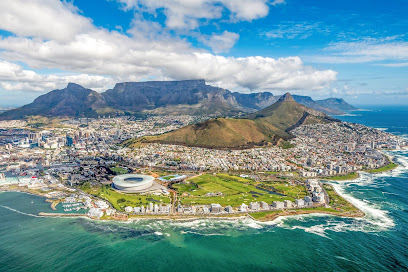
Platteklip Gorge
Discover the stunning beauty of Platteklip Gorge, a top hiking destination in Table Mountain National Park, perfect for breathtaking views and nature exploration.
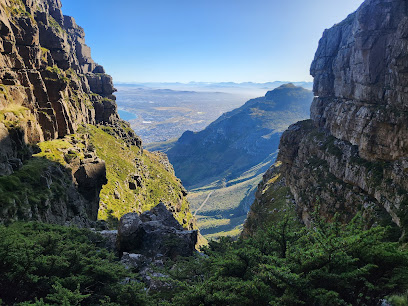
Constantia Nek
Experience the stunning views and serene trails of Constantia Nek, a breathtaking national park in Cape Town, South Africa, perfect for nature lovers and adventurers.
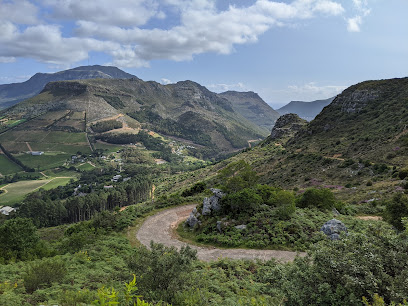
The Pipe Track Trail
Discover the breathtaking Pipe Track Trail in Cape Town, where stunning views and nature await you on a memorable hiking adventure.
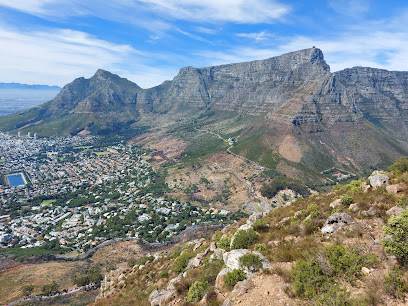
Newlands Forest Picnic Area
Discover the tranquility of Newlands Forest Picnic Area, a serene retreat in Cape Town for picnics and leisurely walks under the trees.
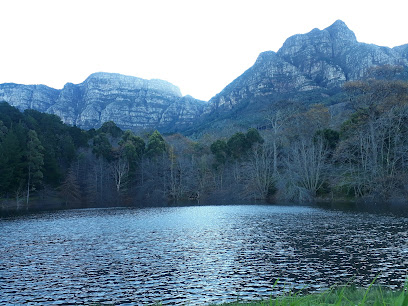
Kloof Corner
Explore Kloof Corner: Experience breathtaking views and nature's beauty in the heart of Cape Town's Table Mountain.
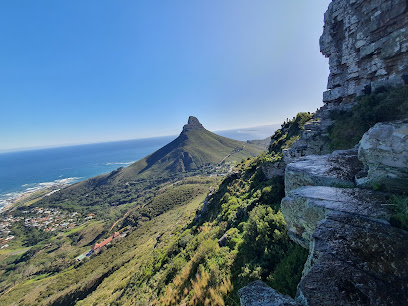
King's Blockhouse
Explore the King's Blockhouse, a historic military outpost offering breathtaking views and a unique glimpse into Cape Town's rich heritage amidst stunning natural beauty.
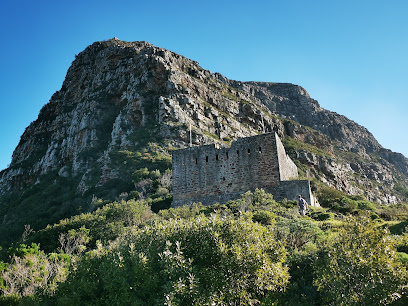
Silvermine Nature Reserve
Explore the breathtaking landscapes and rich biodiversity of Silvermine Nature Reserve, a serene escape in Cape Town's Table Mountain National Park.
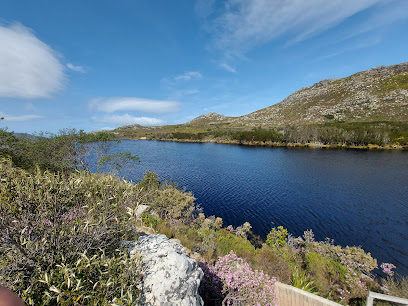
Kasteelspoort Hike Starting Point
Explore the breathtaking trails of Kasteelspoort Hike Starting Point in Table Mountain National Park, a must-visit for outdoor enthusiasts in Cape Town.
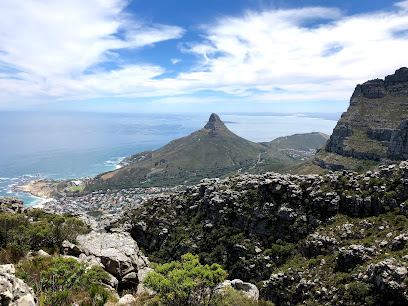
Cecilia, Table Mountain
Discover the natural wonders of Cecilia, Table Mountain, a breathtaking hiking area in Cape Town, perfect for adventurers and nature enthusiasts.
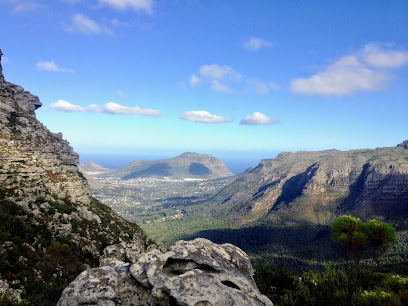
Kasteelspoort Hiking trail
Explore the enchanting Kasteelspoort Hiking Trail in Table Mountain National Park, where breathtaking views and adventure await every nature lover.
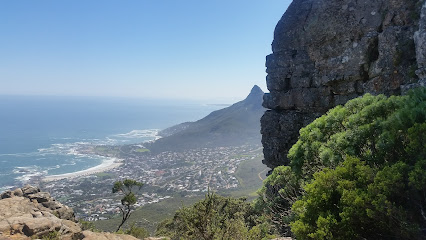
Unmissable attractions to see
City Sightseeing Cape Town Visitor Center
Experience the best of Cape Town at the City Sightseeing Visitor Center, your hub for tours, tickets, and unforgettable adventures in the Mother City.
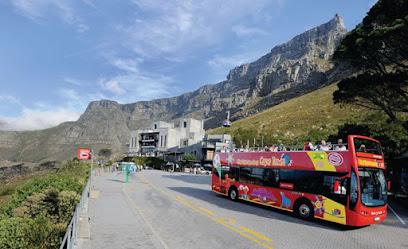
De Waal Park
Discover the tranquility of De Waal Park, a lush urban oasis in Cape Town, where nature and relaxation meet stunning views of Table Mountain.
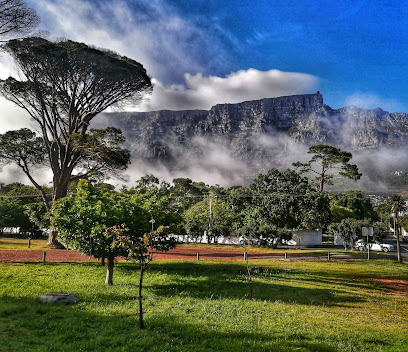
Bakoven Beach
Experience the tranquil allure of Bakoven Beach, a hidden paradise in Cape Town with stunning views and serene sands, perfect for relaxation and exploration.
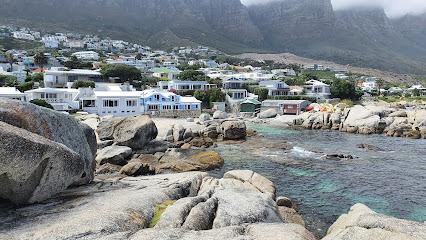
Cape Diamonds
Discover the elegance of handcrafted jewelry at Cape Diamonds in Green Point, where luxury meets artistry in every exquisite piece.
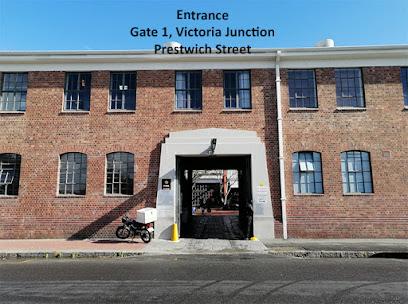
The Cape Town Local
Explore Cape Town's beauty and culture with The Cape Town Local, your premier tour operator for unforgettable experiences.
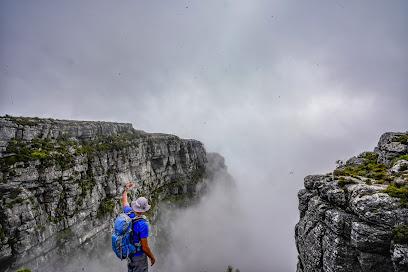
Kloof Corner
Explore Kloof Corner, a picturesque hiking area in Table Mountain Nature Reserve, where spectacular views and nature await every adventurer.
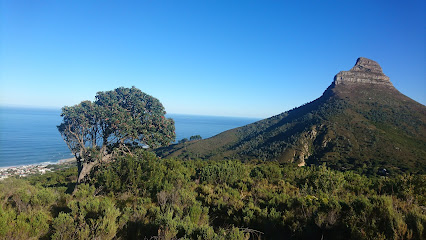
King's Blockhouse
Explore the historic King's Blockhouse in Table Mountain Nature Reserve for breathtaking views and a glimpse into Cape Town's fascinating past.
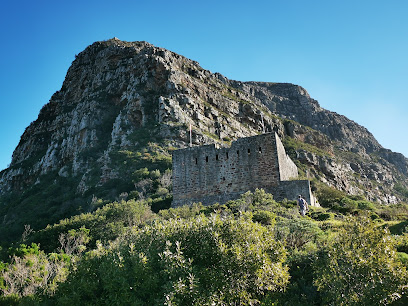
Cecilia, Table Mountain
Discover the breathtaking Cecilia, Table Mountain: a tranquil haven for hikers and nature lovers in the heart of Cape Town's natural beauty.
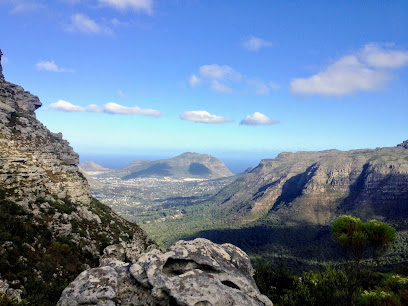
Mzansi Restaurant - African Restaurant Cape Town, South African Township Food
Discover the authentic taste of South Africa at Mzansi Restaurant, where rich flavors and cultural heritage unite in Langa, Cape Town.
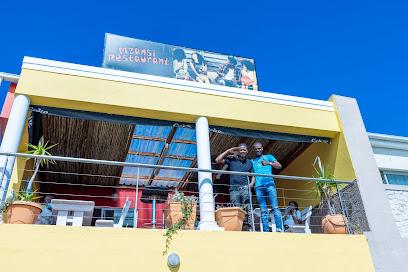
Silver Spoon Indian Cuisine
Experience the flavors of India at Silver Spoon Indian Cuisine in Tokai, Cape Town, where every dish tells a story of tradition and taste.
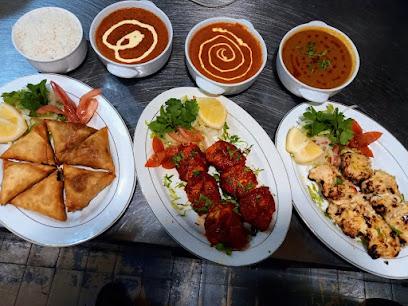
Maclear's Beacon
Discover the breathtaking views and rich biodiversity at Maclear's Beacon, the highest point of Table Mountain in Cape Town.
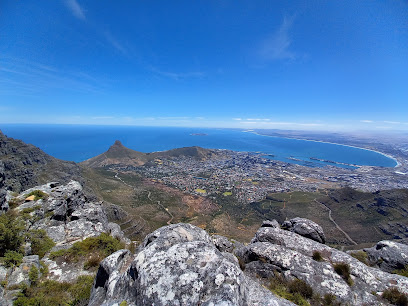
Longridge Wine Estate
Experience exquisite wines and stunning views at Longridge Wine Estate in Stellenbosch, the heart of South Africa's vibrant wine culture.

Long Beach
Discover the beauty of Long Beach, a stunning South African coastline offering golden sands, thrilling surf, and vibrant marine life for unforgettable adventures.
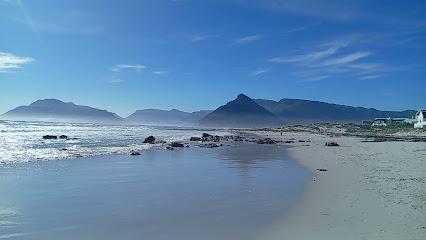
Old Cableway Station
Explore the Old Cableway Station at Table Mountain - a historic site offering breathtaking views and access to stunning trails in Cape Town's nature reserve.
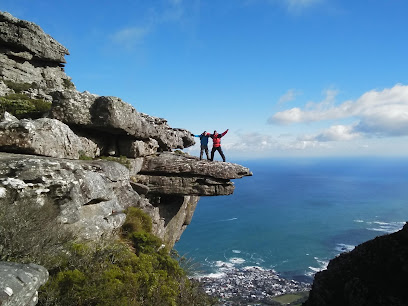
Stellenzicht Wines
Discover Stellenzicht Wines in Stellenbosch: a captivating winery offering exquisite tastings, stunning views, and an authentic winemaking experience.
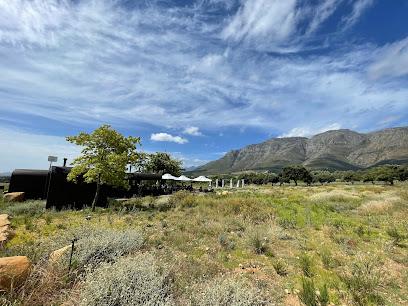
Markets, malls and hidden boutiques
V&A Waterfront
Explore Cape Town's V&A Waterfront: A vibrant shopping mall and cultural landmark with stunning views and diverse experiences.
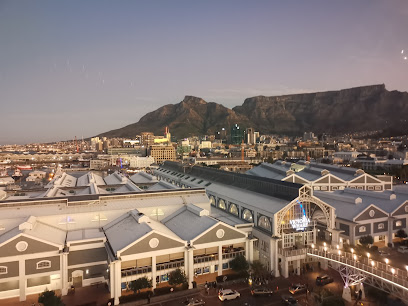
Table Mountain National Park
Explore the natural beauty and diverse wildlife of Table Mountain National Park, a UNESCO World Heritage Site in Cape Town, South Africa.
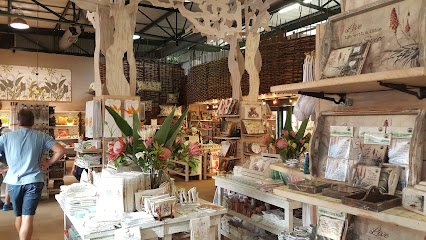
The Old Biscuit Mill
Explore The Old Biscuit Mill: A vibrant market in Cape Town, brimming with local art, gourmet food, and unique shopping experiences.
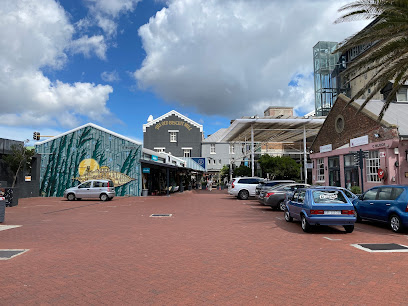
The Watershed
Experience the vibrant atmosphere of The Watershed, a premier market at the V&A Waterfront in Cape Town, showcasing local crafts and delicious artisanal food.
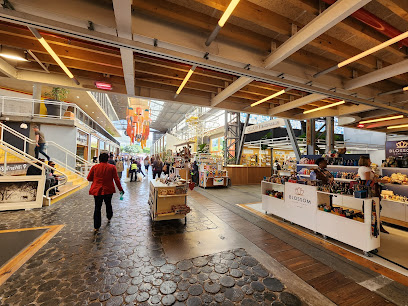
Table Bay Mall
Discover the ultimate shopping experience at Table Bay Mall in Cape Town, featuring diverse stores, dining, and entertainment options for all.
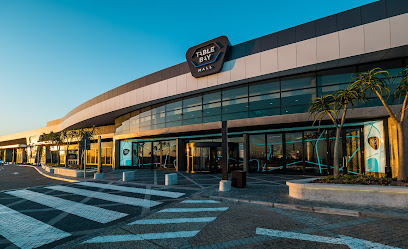
Greenmarket Square
Explore Greenmarket Square: A Vibrant Market Celebrating Cape Town's Culture and Artistry with Unique Crafts and Local Delights.
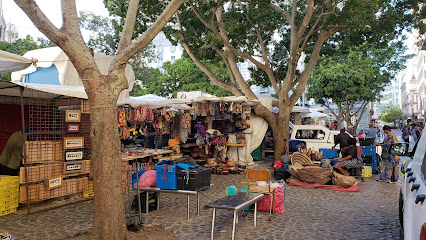
Gardens Shopping Centre
Explore the Gardens Shopping Centre in Cape Town for a delightful mix of shopping, dining, and local culture in a vibrant setting.
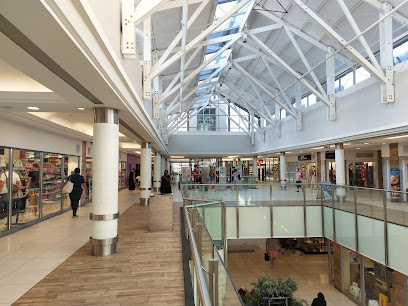
Newlands Forest
Explore the lush trails and serene beauty of Newlands Forest, a tranquil escape within Table Mountain National Park, ideal for nature lovers and adventurers.
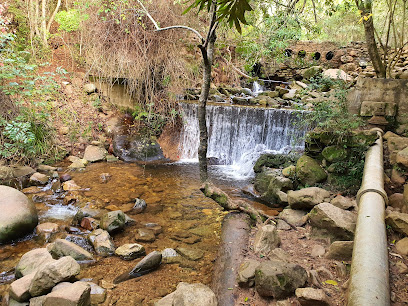
Table Mountain
Explore Table Mountain: A breathtaking natural wonder in Cape Town with stunning views, rich biodiversity, and unforgettable hiking adventures.
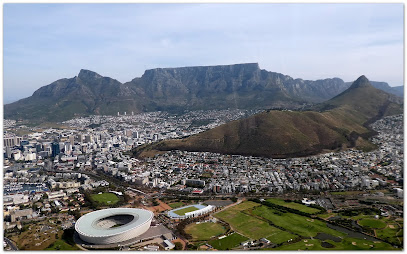
Table View Shopping Centre
Discover the vibrant Table View Shopping Centre in Cape Town, where shopping meets stunning ocean views and delightful dining options.
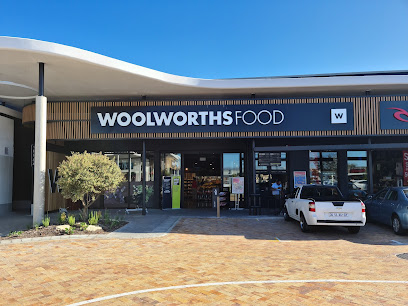
Maclear's Beacon
Discover the breathtaking views from Maclear's Beacon, the highest point of Table Mountain, and immerse yourself in Cape Town's natural beauty.
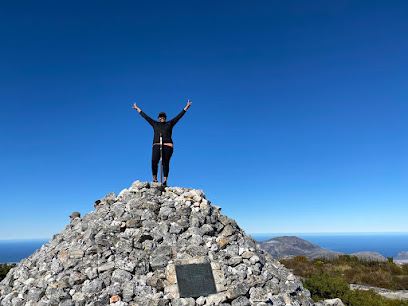
Lifestyle On Kloof
Explore Lifestyle On Kloof, a vibrant shopping mall in Cape Town offering unique boutiques, delicious dining, and a taste of local culture.
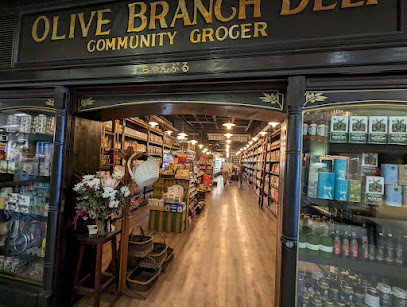
Cecilia, Table Mountain
Explore the enchanting Cecilia Forest on Table Mountain, a hiker's haven featuring stunning landscapes, diverse wildlife, and breathtaking views.
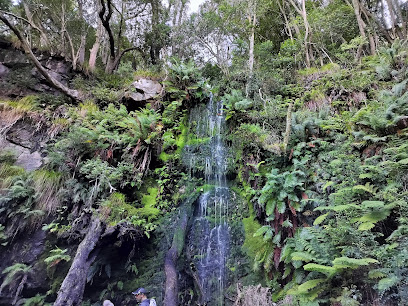
Montebello Design Centre
Explore Montebello Design Centre: An art sanctuary in Newlands, blending creativity, craft, and nature in Cape Town.
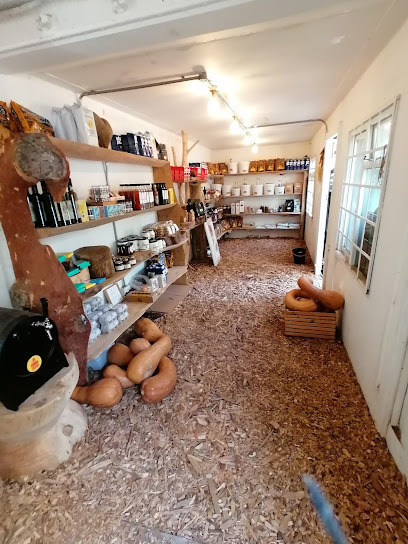
Baraka Gifts and Decor
Explore Baraka Gifts and Decor in Cape Town for unique, locally-crafted treasures that embody the spirit of South Africa's rich culture.
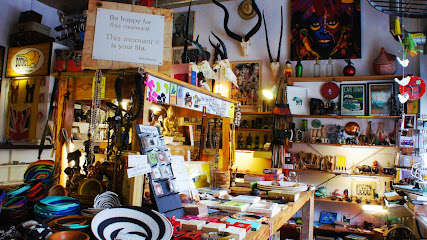
Essential bars & hidden hideouts
Foresters Arms
Discover the Heart of Cape Town at Foresters Arms, a beloved pub and restaurant in Newlands, offering exquisite dining and vibrant nightlife.
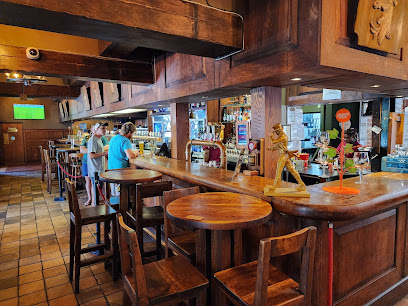
Oblivion Bar & Kitchen
Experience the vibrant atmosphere and diverse menu at Oblivion Bar & Kitchen, a must-visit culinary hotspot in the heart of Cape Town.
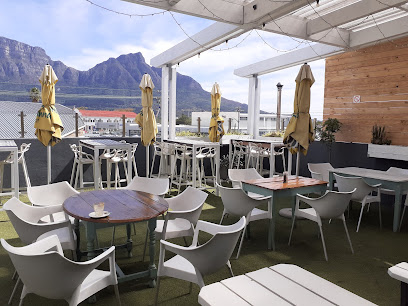
Table Mountain Aerial Cableway Cafe.
Experience breathtaking views and delightful cuisine at the Table Mountain Aerial Cableway Cafe, a must-visit gem in Cape Town.
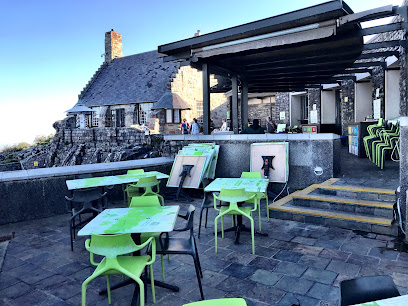
Pakalolo Tableview
Discover Pakalolo Tableview, a vibrant cocktail bar in Cape Town offering stunning views, delicious Mexican cuisine, and a lively atmosphere for every occasion.
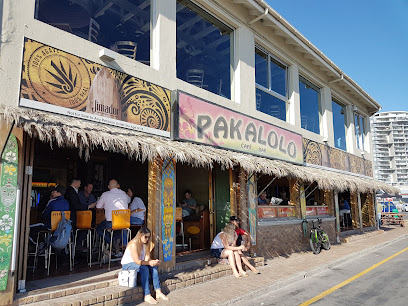
Van Hunks
Experience the vibrant atmosphere and delicious grilled delights at Van Hunks, Cape Town's beloved grill and bar in the charming Gardens district.
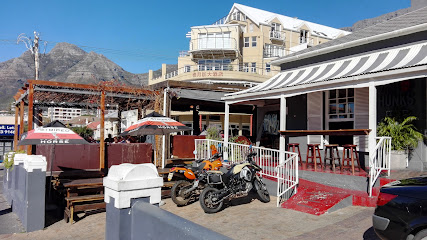
The House of Machines
Experience the vibrant nightlife of Cape Town at The House of Machines, a unique bar blending cocktails, live music, and a warm café ambiance.
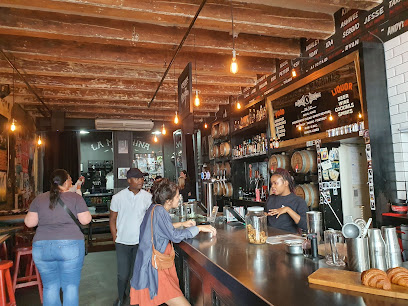
The Station on Bree
Experience the vibrant atmosphere at The Station on Bree, Cape Town's trendy bar and restaurant with a unique London underground theme.
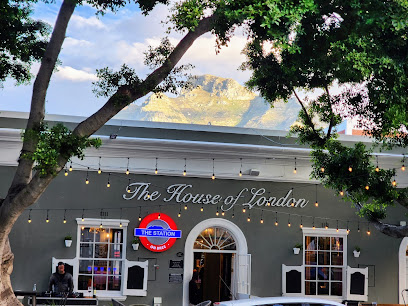
JC Brasserie Pub
Discover the vibrant atmosphere and delicious local cuisine at JC Brasserie Pub in Cape Town's District Six, a perfect stop for food lovers.
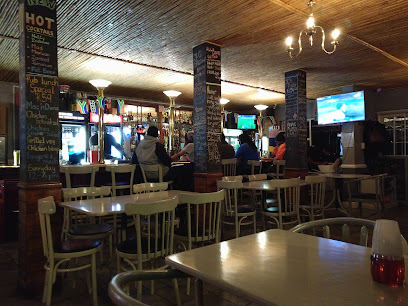
Bob's Bar and Bistro
Discover the vibrant nightlife and delicious bites at Bob's Bar and Bistro on Long Street, Cape Town's go-to spot for fun and relaxation.

The Power & The Glory
Experience the vibrant atmosphere of The Power & The Glory, a unique bar and café in Tamboerskloof, Cape Town, perfect for any time of day.
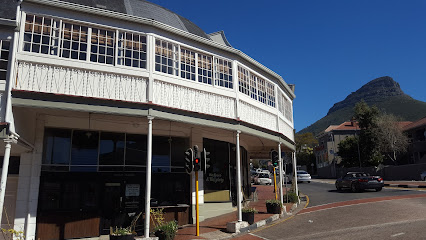
Club Tai Pan| Eatery, Bar, Events
Experience the vibrant nightlife and exquisite dining at Club Tai Pan, a must-visit bar and restaurant in Cape Town's CBD.
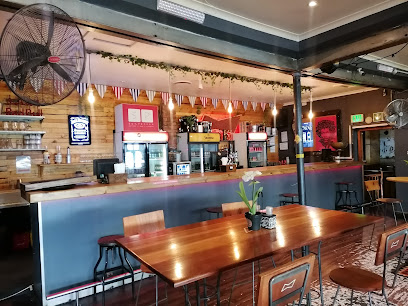
Casa Woodstock Bar
Discover the vibrant atmosphere and delicious pizzas at Casa Woodstock Bar, a must-visit destination in Cape Town's Woodstock neighbourhood.
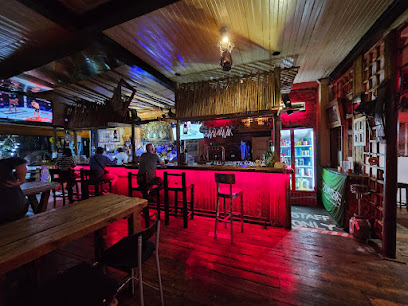
SurfaRosa
Experience the vibrant nightlife of District Six at SurfaRosa, where innovative cocktails and a lively atmosphere await every visitor.
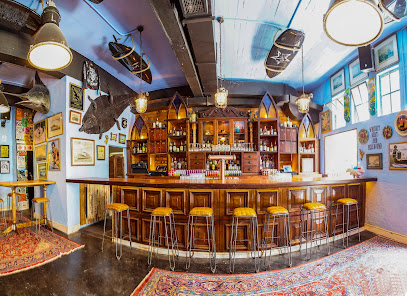
14Stories Rooftop Bar
Discover the stunning views and vibrant atmosphere of 14Stories Rooftop Bar, where Cape Town's skyline meets unforgettable cocktails.
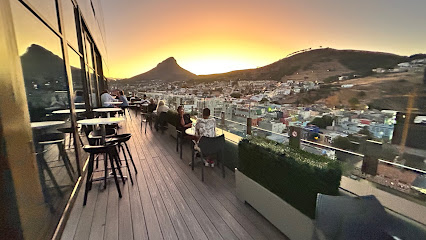
Local Phrases about Table Mountain National Park
-
- HelloMolo
[moh-loh] - GoodbyeHamba kahle
[hahm-bah kah-leh] - YesEwe
[eh-weh] - NoHayi
[hah-yee] - Please/You're welcomeNceda
[n-chay-dah] - Thank youEnkosi
[en-koh-see] - Excuse me/SorryUxolo
[oo-choh-loh] - How are you?Unjani?
[oon-jah-nee] - Fine. And you?Ndiyaphila. Wena?
[ndee-yah-pee-lah. weh-nah] - Do you speak English?Unomthetho ngesiNgisi?
[oo-nohm-teh-thoh n-gheh-see-ng-gee-see] - I don't understandAndiyazi
[ahn-dee-yah-zee]
- HelloMolo
-
- I'd like to see the menu, pleaseNdifuna ukubona imenyu, nceda
[n-dee-foo-nah ooh-koo-boh-nah ee-men-yoo, n-chay-dah] - I don't eat meatAndiyiva inyama
[ahn-dee-yee-vah ee-nyah-mah] - Cheers!Ooza!
[oh-zah] - I would like to pay, pleaseNdifuna ukulipha, nceda
[n-dee-foo-nah oo-koo-lee-pah, n-chay-dah]
- I'd like to see the menu, pleaseNdifuna ukubona imenyu, nceda
-
- Help!Nceda!
[n-chay-dah] - Go away!Hamba!
[hahm-bah] - Call the Police!Biza amapolisa!
[bee-zah ah-mah-poh-lee-sah] - Call a doctor!Biza umthengisi!
[bee-zah oom-tehng-gee-see] - I'm lostNdinomfutho
[n-dee-nohm-foo-thoh] - I'm illNdisuka
[ndee-soo-kah]
- Help!Nceda!
-
- I'd like to buy...Ndifuna ukuthenga...
[n-dee-foo-nah ooh-koo-ten-gah] - I'm just lookingNdibonisa kuphela
[n-dee-boh-nee-sah koo-peh-lah] - How much is it?Yimalini?
[yee-mah-lee-nee] - That's too expensiveLeli likhulu kakhulu
[leh-lee lee-khoo-loo kah-khoo-loo] - Can you lower the price?Uyanxibeka ixabiso?
[oo-yah-n-zee-beh-kah ee-kah-bee-so]
- I'd like to buy...Ndifuna ukuthenga...
-
- What time is it?Yintoni ixesha?
[yin-toh-nee ee-guh-sheh] - It's one o'clockIxesha elifanelekile
[ee-guh-sheh eh-lee-fah-neh-leh-kee-leh] - Half past (10)Ixesha elinesithupha
[ee-guh-sheh eh-lee-neh-see-too-pah] - MorningEmva kwezinyanga
[ehm-vah kweh-zee-nyahn-gah] - AfternoonEkuseni
[eh-koo-seh-nee] - EveningNtambama
[n-tahm-bah-mah] - YesterdayIzolo
[ee-zoh-loh] - TodayNamhlanje
[nahm-hlahn-jeh] - TomorrowKusasa
[koo-sah-sah] - 1Kunye
[koo-nyeh] - 2Kubili
[koo-bee-lee] - 3Kuthathu
[koo-tah-thoo] - 4Kune
[koo-neh] - 5Kuthandathu
[koo-tahn-dah-thoo] - 6Kwesithandathu
[kweh-see-tahn-dah-thoo] - 7Kwesibhozo
[kweh-see-bhoh-zoh] - 8Kwesishiyagalombili
[kweh-see-shee-yah-gah-lohm-bee-lee] - 9Kwesishiyagalolunye
[kweh-see-shee-yah-gah-loh-loo-nyeh] - 10Kwesishiyagalolunye
[kweh-see-shee-yah-gah-loh-loo-nyeh]
- What time is it?Yintoni ixesha?
-
- Where's a/the...?Indawo yini...
[een-dah-wuh yee-nee] - What's the address?Ikhaya linjani?
[ee-khah-yah lee-njah-nee] - Can you show me (on the map)?Uyakundibonisa (enjengokuba)?
[oo-yah-koon-dee-boh-nee-sah eh-n-jeh-ngoh-koo-bah] - When's the next (bus)?Yiziphi ezinye (ibus)?
[yee-zee-pee eh-zee-nyeh i-boos] - A ticket (to ....)Ikhiti (ekela ....)
[ee-khee-tee eh-keh-lah]
- Where's a/the...?Indawo yini...
History of Table Mountain National Park
-
Long before European settlers arrived, the Khoisan people were the original inhabitants of the Table Mountain region. They lived as hunter-gatherers and pastoralists, and their presence in the area dates back thousands of years. Their rock art and cultural sites can still be found in the park, offering a glimpse into their ancient way of life.
-
In 1652, Jan van Riebeeck of the Dutch East India Company established a supply station at the Cape of Good Hope, which eventually became Cape Town. Table Mountain served as a notable landmark for sailors navigating the treacherous waters around the Cape. The mountain's natural resources, including fresh water and timber, were vital to the early settlers.
-
The first recorded ascent of Table Mountain was made by António de Saldanha, a Portuguese explorer, in 1503. He named the mountain 'Taboa do Cabo,' which translates to 'Table of the Cape.' The climb marked the beginning of the mountain's long history of exploration and adventure.
-
In the late 18th century, British forces took control of the Cape Colony from the Dutch. This period saw significant botanical exploration of Table Mountain, with many unique plant species being documented by European scientists. The mountain's rich biodiversity continues to be a major draw for botanists and nature enthusiasts.
-
Opened in 1929, the Table Mountain Aerial Cableway revolutionized access to the summit, making it possible for people of all ages and abilities to enjoy the panoramic views. The cableway has undergone several upgrades over the decades and remains one of the most popular attractions in the park.
-
Throughout South Africa's turbulent history, Table Mountain has stood as a symbol of resilience and natural beauty. It played a part in the anti-apartheid movement, serving as a backdrop for rallies and protests. Today, it is a UNESCO World Heritage Site and a symbol of national pride.
Table Mountain National Park Essentials
-
Table Mountain National Park is located in Cape Town, South Africa. The nearest international airport is Cape Town International Airport, approximately 20 kilometers away from the city center. From the airport, you can take a taxi, airport shuttle, or rent a car to reach the park. Alternatively, public transportation options, such as MyCiTi buses, are available and connect the airport to various parts of Cape Town.
-
Cape Town offers various transportation options to get to and around Table Mountain National Park. The MyCiTi bus service is a reliable and affordable public transport option that connects different parts of the city, including the park. Taxis and ride-sharing services like Uber are also readily available. For those who prefer more flexibility, renting a car is a good option. There are also several tour operators offering guided tours to the park.
-
The official currency in South Africa is the South African Rand (ZAR). Major credit and debit cards are widely accepted in Cape Town, including at most establishments within Table Mountain National Park. However, it is advisable to carry some cash for smaller vendors or in case of technical issues with card machines. ATMs are available throughout Cape Town, including near the park entrances.
-
While Table Mountain National Park itself is generally safe, it is important to be vigilant in certain areas of Cape Town known for higher crime rates, such as parts of the city center and certain townships. Avoid walking alone at night, and keep your belongings secure. Stick to well-traveled paths and avoid isolated areas within the park. It's also advisable to hike in groups and inform someone about your plans.
-
In case of emergency, dial 10111 for police or 112 from a mobile phone for general emergency services. Medical facilities are available in Cape Town, with several hospitals and clinics nearby. It is recommended to have travel insurance that covers medical emergencies. For minor injuries, first aid stations are available at key points within Table Mountain National Park. Additionally, park staff and rangers are equipped to assist in emergencies.
-
Fashion: Do wear comfortable, weather-appropriate clothing and sturdy hiking shoes. Dress in layers to accommodate changing weather conditions. Religion: Do respect local customs and traditions, especially when visiting religious sites within the city. Public Transport: Do be courteous to fellow passengers on public transport. Offer your seat to the elderly or those in need. Don't eat or drink on public transport. Greetings: Do greet people with a friendly 'hello' or 'hi.' A smile goes a long way. Eating & Drinking: Do try local cuisine and be open to new culinary experiences. Don't litter; always dispose of waste properly.
-
To experience Table Mountain National Park like a local, consider visiting during the early morning or late afternoon to avoid crowds and enjoy the best light for photography. Engage with park rangers and staff—they often have valuable insights and recommendations. Don't miss the lesser-known trails and viewpoints that offer unique perspectives of the park. Also, pack a picnic and enjoy a meal with a view at one of the many scenic spots within the park.
Trending Landmarks in Table Mountain National Park
-
Newlands Forest
-
Rhodes Memorial
-
Table Mountain
-
Platteklip Gorge Starting Point
-
Robben Island viewing Point (looking toward Table Mountain)
-
Platteklip Gorge
-
Constantia Nek
-
The Pipe Track Trail
-
Newlands Forest Picnic Area
-
Kloof Corner
-
King's Blockhouse
-
Silvermine Nature Reserve
-
Kasteelspoort Hike Starting Point
-
Cecilia, Table Mountain
-
Kasteelspoort Hiking trail
Nearby Cities to Table Mountain National Park
-
Things To Do in Keetmanshoop
-
Things To Do in Kimberley
-
Things To Do in Lüderitz
-
Things To Do in East London
-
Things To Do in Bloemfontein
-
Things To Do in Mafeteng
-
Things To Do in Mohale's Hoek
-
Things To Do in Quthing
-
Things To Do in Maseru
-
Things To Do in Teyateyaneng
-
Things To Do in Mariental
-
Things To Do in Leribe
-
Things To Do in Thaba-Tseka
-
Things To Do in Butha-Buthe
-
Things To Do in Mokhotlong











